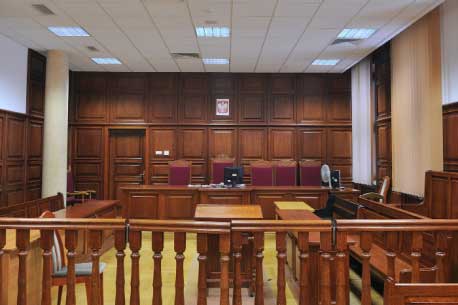- What is mediation?
- Advantages of mediation
- What cases can be mediated?
- At which stage of the proceedings should we apply for mediation?
- Who can apply for mediation?
- Mediators
- Consequences of mediation settlement.
The institution of mediation in criminal cases is regulated in the provisions of the Criminal Procedure Code and in the Regulation of the Minister of Justice on mediation proceedings in criminal cases (Journal of Laws of 26 June 2003). The Criminal Procedure Code provides general conditions of mediation, while the Regulation specifies in detail the conditions which should be fulfilled by the institutions and people authorized to conduct mediation proceedings, the manner of appointing and dismissing institutions and people authorized to conduct mediation proceedings, the scope and terms of providing institutions and people authorized to conduct mediation proceedings with access to case files, as well as the way and mode of conducting mediation proceedings.
- Mediation is one of the forms of so-called alternative solution of disputes, aimed at ending a dispute by settlement, without conducting long and costly judicial proceedings. Mediation is voluntary and depends on consent of the parties - both the aggrieved party and the defendant. Mediation is conducted out of court, with participation of an independent and impartial mediator. Mediation proceedings are free of charge and confidential.
- Most importantly, mediation gives a chance to resolve a dispute amicably, faster and sometimes more efficiently than in judicial proceedings. It is emphasized that owing to mediation the aggrieved person has a chance to express more fully his or her feelings connected with the harm or damage sustained and possible claims associated with them. From the perspective of the defendant/suspect who decides to adopt a conciliatory attitude, the most important advantages are: possibly milder treatment by the court, lower costs of the proceedings, and a chance to reach an agreement with the aggrieved person concerning compensation or redress.
- The scope of the matters which can be subjected to mediation is not limited in any way by the Criminal Procedure Code. It means that theoretically it is possible to apply for mediation in any case, irrespective of its character or gravity. However, a final decision to refer the case to mediation proceedings is taken by the court or by the prosecutor, depending on the stage of the procedure.
- It is worth remembering that mediation proceedings can be conducted already at the stage of the preparatory proceedings carried out by a prosecuting authority, such as the police or the prosecutor's office. It means that a motion to institute mediation can be lodged already after delivery of a decision to present charges, that is at the very beginning of the procedure in personam - against a specific person.
- Mediation is conducted at a motion or ex officio. Both the aggrieved party and the defendant can file a motion to conduct mediation. The motion is lodged with the court, the prosecutor or the police, depending on the stage of the proceedings. It should be remembered that a condition for institution of the mediation proceedings is the consent of the other party. Another possibility is referral of the parties to mediation by the authority conducting the judicial or preparatory proceedings ex officio. Certainly, the consent of both parties is necessary also in this case. The court or the prosecutor refers the matter to mediation by a relevant decision.
- In accordance with Article 23a of the Criminal Procedure Code, the court can refer the matter to an institution or a trustworthy person. Detailed criteria which must be fulfilled by mediators are specified in the regulation. An institution entitled to conduct mediation proceedings must be entered in the relevant register maintained by a regional court and should be established to perform tasks in mediation, rehabilitation, protection of social interest, important individual interest or protection of human rights and freedoms, and should have proper organizational conditions and personnel to make mediation possible. A person who wants to become a mediator should be entered in the relevant register and should have conflict-solving skills, as well as knowledge especially in psychology, pedagogy, sociology, rehabilitation and law, necessary to conduct mediation proceedings. In exceptional cases, justified by the need for efficient conducting of mediation proceedings, an institution or a trustworthy person not entered in the register can be appointed in a given matter if they report their readiness and fulfil other conditions. The following people cannot be mediators: a person who is directly affected by the case, a person related to any of the parties, a witness of the act, and other people whose impartiality in the case can be doubted. Furthermore, mediation proceedings cannot be conducted by a professionally active judge, prosecutor, attorney, legal advisor or legal trainee.
- Mediation does not end the proceedings in the case. A mediator prepares a report on mediation which contains the settlement if it is has been reached. The report is submitted to the court, the prosecutor or the police. The content of the settlement should be taken into account by the authority adjudicating on the matter.
Sources:
- Lex
- Guidebook on criminal mediation of the Ministry of Justice - _informacja-o-mediacji-karnej_2.pdf_
[Legal status as at July 2015]



